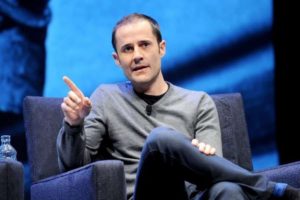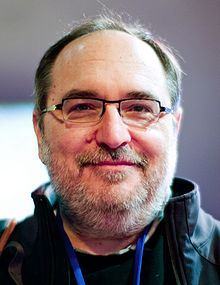Amit Agarwal- Journey to start Labnol of first-ever professional Technical blogger of India
The picture of blogging seen today was way different in the past. People took it as a way of expressing thoughts only. Of course, blogs are the best medium to express thoughts but one can also earn good money through blogging. However, in 2000-04, it was not as easy as it is today. In such time, Amit Agarwal decided to use blogging as a way of earning bread and butter. That time, many people crossed his idea to earn money from blogging. But Amit proved them wrong and become the first professional blogger of India to start a technical blog.
Early life of Amit
Amit is raised in a family with having a business background, and he has an engineering background. He was one of the studious children in the family, having command over mathematics. Yet he was not interested in engineering, rather he wanted to join the family business during his teenage. But as he grew, his interest leaned towards technology and he decided to study engineering.

Education
He got selected in IIT-Roorkee and opted for Computer Science engineering. Everything was just the opposite as he decided in his childhood. Still, he managed to be in the toppers list.
Generally, computer science students focus on coding. However, Amit was more interested in software installation. In fact, he has always been curious to know how it works? How the files are modified due to installing new software? Amit always tries to find the answers to all his questions. Today, he is answering such questions of his audience. That time, he would have never thought that his curiosity will help him in the future.
Career
After graduating in 1999, he started working at ADP inc, Hyderabad. He worked on the database for about 5 years. During his job, work is appreciated and he got the chance to lead the team in a very short duration. However, he shifted his focus from the technical field to management. Apparently, a person from the family having a business background couldn’t stop the inner businessman. But he learned many new things during his first and last job. The technical experience turned out useful in his blogging career.
The backstory to become a professional blogger
Amit is from a typical joint family of India. His mother and other ladies of the family wanted him to work at the native place. However, he decided to shift to Hyderabad for Job, though he wanted to stay with family. After spending 5 years in Hyderabad, he finally decided to go back to home town, Agra.
That time, he had very few career options to choose, and most of them are either seasonal or offering less money. For that, he started a blog and started posting his skills, technical knowledge, etc. Initially, his pure intention to start a blog was to get noticed by employers.
Turning point
It is said that everyone has some turning points in life, the same happened in the case of Amit. He casually posted detailed information about the HP printer on his blog. Surprisingly, many viewers read the blog post and asked their doubts. Thereafter, he started posting similar tech-related posts which became popular among the audience. This incident made Amit think to become a professional blogger and he followed his inner voice.
Rise of first professional technical blogger of India
Blogging was not that familiar to Indian people in 2004. At that time, Amit Agarwal decided to choose blogging as a career. In fact, it was a very different environment for bloggers than it is today. No social media, very few online networking tools, and several other challenges were there. However, Amit decided to become a blogger and started Labnol in this period.
When Desipundit picked his content, Amit got the much-needed reach and his audiences raised enormously. It all happened within one year of starting the blog. Also, he tried several other ways to get noticed like he attended many blog camps. With different strategies and quality content, Amit rise as the first professional blogger in India.
About Labnol
It is a technical blog that started in 2004. Amit selected the name as Labnol just because it is unique, unlike his name. He wrote software reviews based on his experience on Labnol blog post. As well, he shares genuine information about technical products based on his experience.
Over the years, Labnol blogs have improved and the audience still loves it. Because Labnol did not shift the focus from consumer software from 11 years. Though the blog becomes world-famous, the information is still genuine and not written for promotional purposes.
Bottom line
Amit Agarwal has set an example for many entrepreneurs who want to do something new. He proved that if you have a passion for something, you can make a living out of it.

Jayshri is an Electronics Engineer, but her passion towards writing made her to be in this field. Apart from content writing, she loves reading, writing and surfing on various topics. In her free time, she likes to watch TV series and news. Sherlock Holmes is her all time favorite show. Jayshri loves cooking various Indian-western dishes.






